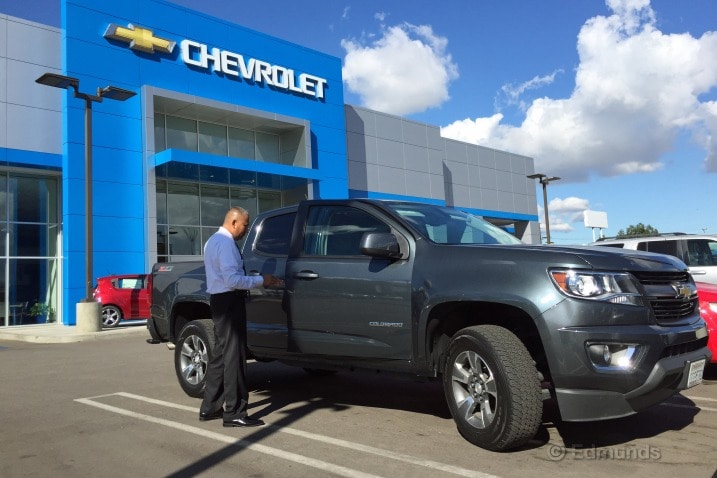Online used car retailers: Carvana, Shift and Vroom
These independent used car dealers operate similarly to CarMax, with one big exception: They're primarily online only. So, there's no car lot to wander with an associate if you have questions or simply want to see the car in person before purchasing. That said, Carvana, Shift, Vroom and other online used car retailers offer the ability to complete an entire car purchase online. You can then have the vehicle delivered to your home or apartment, making it a convenient way to buy a car.
Carvana, Shift and Vroom offer a seven-day return window, which is functionally your test drive. (Vroom's is capped by a 250-mile limit.) In most cases, you won't be able to test-drive a vehicle from one of these companies before your home delivery. You must go through the motions of purchasing the vehicle before you can get behind the wheel.
The biggest downside to buying a vehicle from an online retailer is the added fees. You'll often encounter shipping fees and or processing fees. If you change your mind on a vehicle and paid shipping fees, they would not be refunded. Similarly, if you traded in a vehicle, you won't likely get it back and its value would be included in the refund check. That said, if you prefer online shopping, you may find the convenience of buying from an online retailer outweighs the extra costs.
Private party
Shopping for a car in the private-party market offers a varied selection and a potential opportunity to get the best price, though you sacrifice the convenience of seeing many cars side by side, as you do at dealer lots. Negotiating with a private-party seller is usually much easier than negotiating with a salesperson at a dealership since most car owners haven't received formal sales training. There are many ways to find private-party vehicles. Some of the more popular places to go on the web are Autotrader, Craigslist, CarGurus and eBay Motors.
Keep in mind that you'll be buying the car "as-is" unless it is still under warranty. Doing so is a riskier move for you as a buyer, but if you bring a mechanic with you or get the car inspected before you buy it, you can offset this risk. With private-party sales, you'll find that the prices are lower across the board. Our pricing analysts calculate that a used vehicle will typically cost about 12% more at a dealership than if it were sold by a private party. You'll need to pay cash or have a car loan already secured in order to close the deal, so make those arrangements beforehand.
Classified car buying sites
Craigslist classified listings cost $5 and Facebook Marketplace ads are free, so the barrier is much lower on these sites for anyone to post a vehicle for sale. You'll find a mix of auto dealerships and private sellers peddling their wares.
There may be good used car candidates on these sites, but you'll have to sift through a number of listings to find one. This is where you'll likely find the lowest prices, but the condition levels of the cars can vary wildly. Many of the car photos you'll see are just plain bad. Some listings have no photos at all. Information on the cars tends to be limited, and you may have to contact the seller to get a VIN, which is what you need to run a vehicle history report. It's not uncommon to encounter cars that have salvage titles, meaning they've likely been in a serious accident. You'll sometimes run across unlicensed car salespeople pretending to be everyday owners. And then there are ads placed by scammers for cars that don't actually exist.
On Facebook Marketplace, you can click on sellers' names and see their Facebook profile (you need to be logged into Facebook to do so) and how many cars they have for sale. You can use this information to form an impression of how they cared for their car, but ultimately it's no substitute for a vehicle history report.
The trick to finding a legitimately good car on these sites is to focus on listings with many photos and detailed information. Ask owners to tell you more about the car and explore why they're selling. And as Craigslist suggests, you'll reduce your chances of being scammed if you shop locally and meet the owner in person.



 by
by 